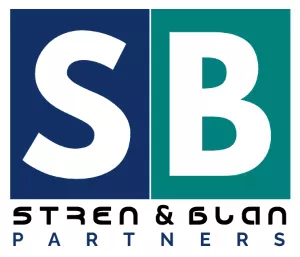Nigeria's petroleum industry has been a cornerstone of its economy since the discovery of oil in commercial quantities in Oloibiri in 1956. Initially dominated by international oil companies (IOCs), the industry has evolved over the decades. To stimulate growth and broaden participation, the government introduced several licensing rounds which is aimed at empowering indigenous companies.
I. Licensing Rounds
Licensing rounds are important in the development of Nigeria's petroleum sector. These rounds allow the government to grant exploration and production licenses to oil companies, which enables them to explore for and produce hydrocarbons. The process ensures that the country's resources are developed efficiently and transparently.
Key Licensing Rounds in Nigeria.
- 1960s-1970s: Licensing rounds were primarily dominated by international oil companies (IOCs). These rounds laid the foundation for Nigeria's oil industry, attracting major players like Shell, Chevron, and ExxonMobil.
- 1980s-1990s: The Nigerian government sought greater control over its resources, leading to the establishment of the Nigerian National Petroleum Corporation (NNPC) in 1977. Licensing rounds during this period emphasized local content and participation of Nigerian companies.
- 2000s: The government introduced more structured and competitive bidding processes. The 2000 licensing round marked a significant shift towards transparency and efficiency. It attracted both IOCs and indigenous companies, fostering a more diverse and competitive market.
- 2010: The focus shifted to deepwater and ultra-deepwater exploration, with rounds targeting offshore blocks. The 2010 and 2017 licensing rounds highlighted Nigeria's commitment to maximizing its offshore potential.
- 2020: The Nigerian government conducted a successful marginal field bid round, awarding licenses to several indigenous companies. This round aimed to increase local participation in the oil and gas sector.
- 2022: These rounds were influenced by the Petroleum Industry Act 2021 (PIA), which aims to reform the sector, enhance regulatory frameworks, and promote sustainable development. The government initiated this Mini-Bid Round to accelerate exploration and production in deepwater blocks. This round was designed to attract new investors and stimulate economic growth. However, due to the ongoing political transition, the bidding process was temporarily halted.
- 2024: The Federal Government of Nigeria (FGN) has taken initial measures to launch the 2024 petroleum licensing round through its upstream oil and gas industry regulator, the Nigerian Upstream Petroleum Regulatory Commission ("NUPRC"). NUPRC recently announced the start of this Licensing Round, aimed at enhancing the country's oil production and revenue. This round offers thirty-six (36) selected blocks1 across various geological formations and is anticipated to draw substantial interest from both domestic investors and international oil companies (IOCs). According to the event calendar, the Licensing Round is expected to conclude by January 2025.
II. Analysis of the Ongoing Licensing Round (The 2024 Licensing Round) in Light of the Petroleum Industry Act 2021
The 2024 licensing round in Nigeria represents a significant shift in the country's petroleum sector, driven by the reforms introduced by the Petroleum Industry Act 2021. This round is the first to be "officially conducted" under the regulatory framework, and it aims to capitalize on the changes brought about by the PIA to attract investment and enhance the efficiency and transparency of the licensing process. 112 new oil blocks: These are onshore and shallow water blocks. 24 deepwater blocks: These blocks were carried over from the 2022 Mini-Bid Round.
Key Features and Objectives of the 2024 Licensing Round
The current licensing round is designed to align with the objectives of the PIA, focusing on maximizing the potential of Nigeria's oil and gas resources while ensuring sustainable development and community benefits.
Key Features:
- Diverse Block Offerings: The round includes a mix of onshore, shallow water, and deepwater blocks, offering opportunities for a range of investors, from major international oil companies to smaller indigenous firms.
- Simplified Application Process: The NUPRC has implemented a more efficient application and bidding process, which utilizes digital platforms to streamline submissions and evaluations.
- Competitive Fiscal Terms: With the new fiscal terms under the PIA, the round offers more attractive financial conditions, including reduced royalty rates and favorable tax terms, to encourage investment.
- ESG Compliance: Companies are required to demonstrate compliance with environmental regulations and to outline their plans for community development, ensuring that investments contribute positively to local communities.
- Transparency Initiatives: The process includes public disclosure of all bidding criteria, applicants, and awards, ensuring a transparent and accountable licensing round.
To view the full article click here.
The content of this article is intended to provide a general guide to the subject matter. Specialist advice should be sought about your specific circumstances.




